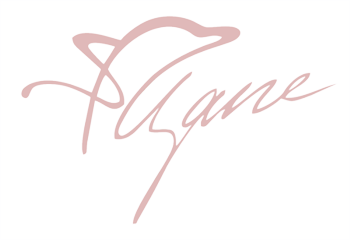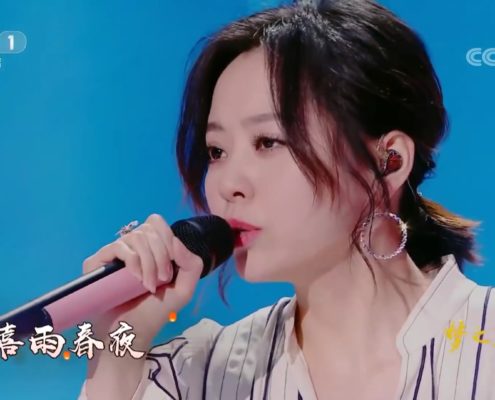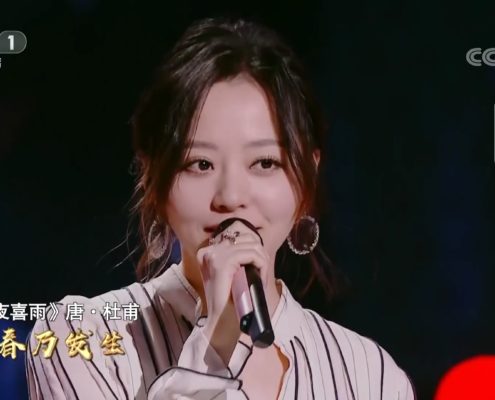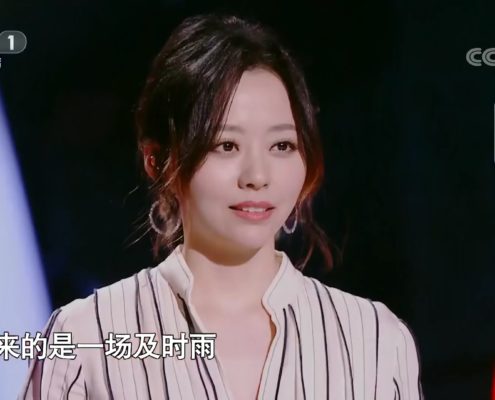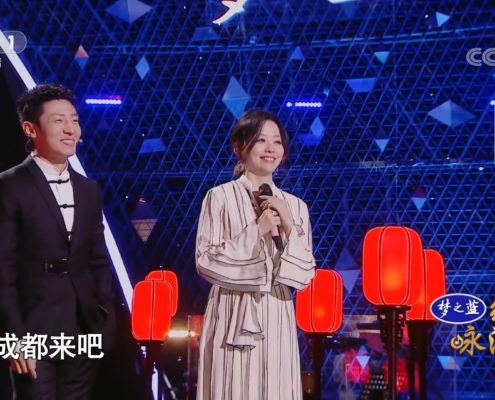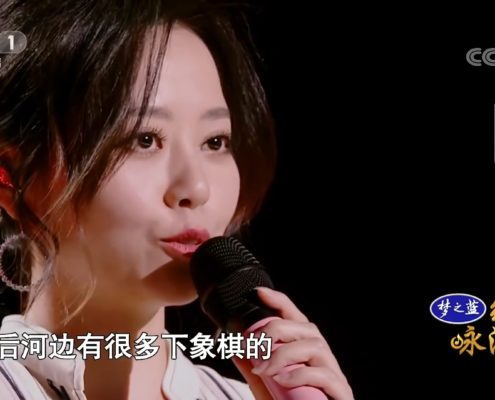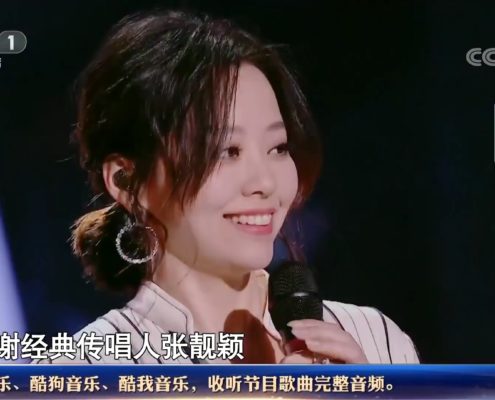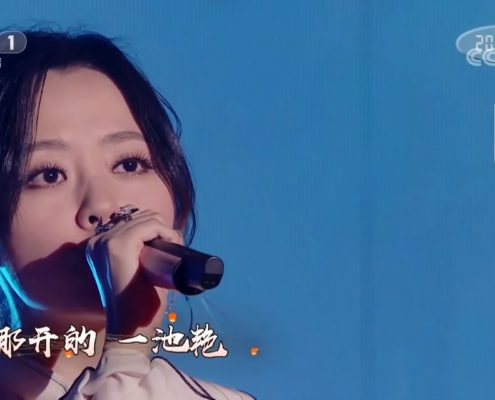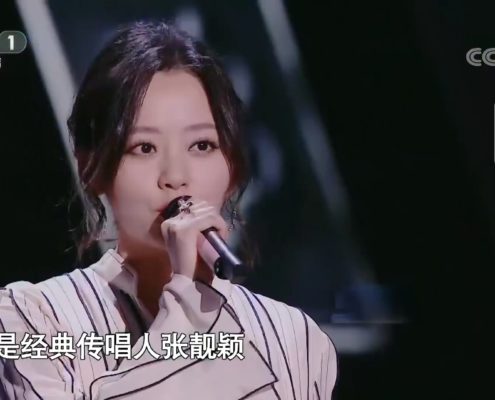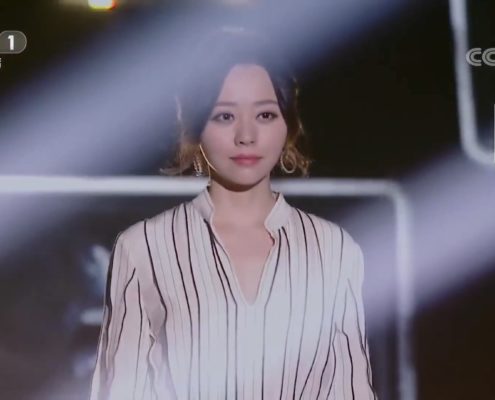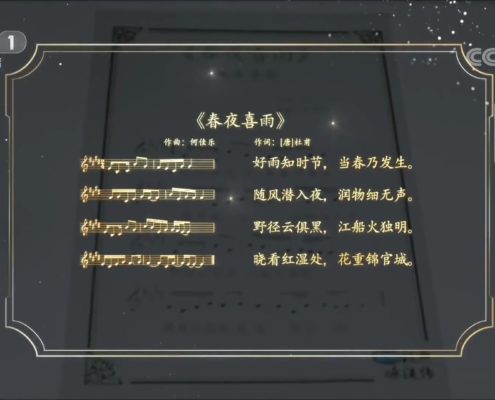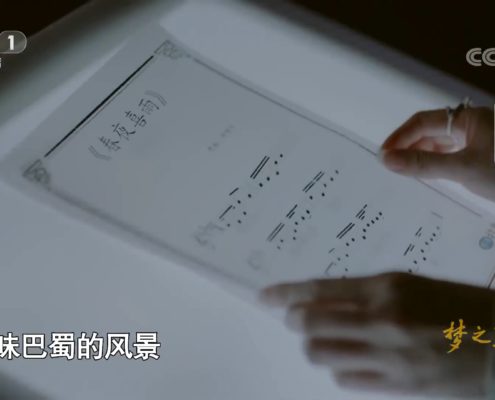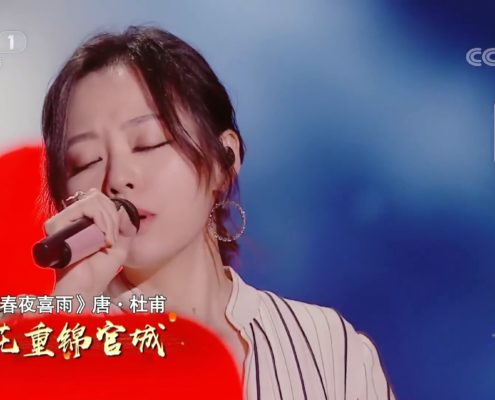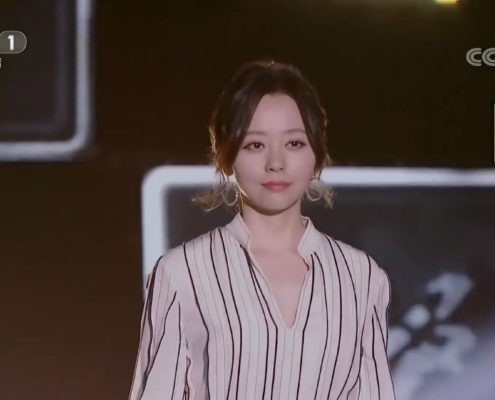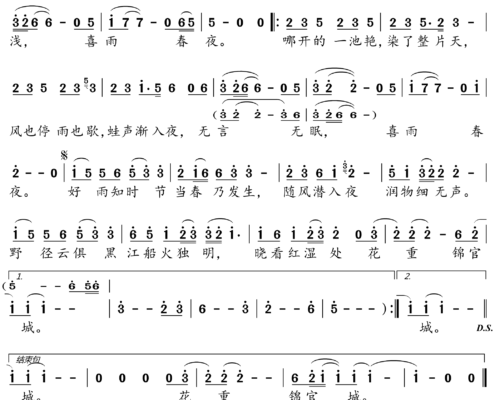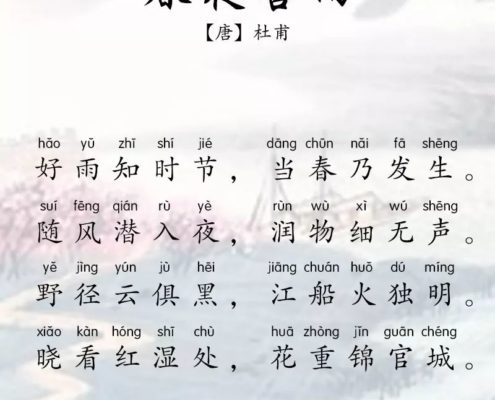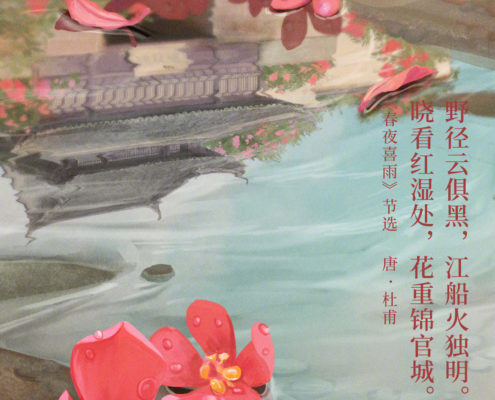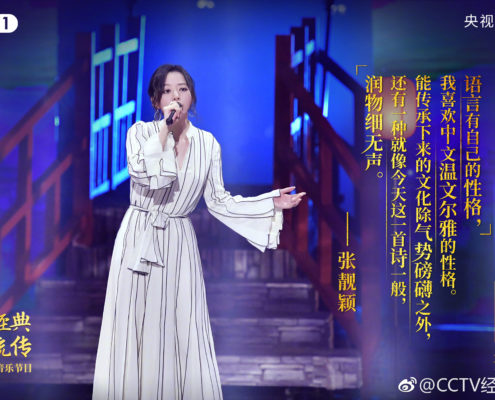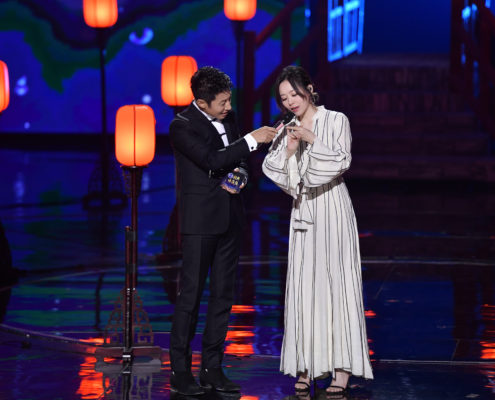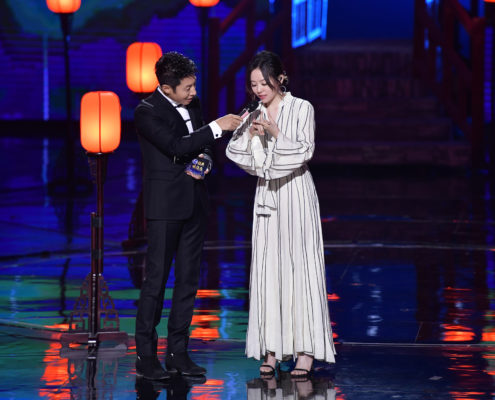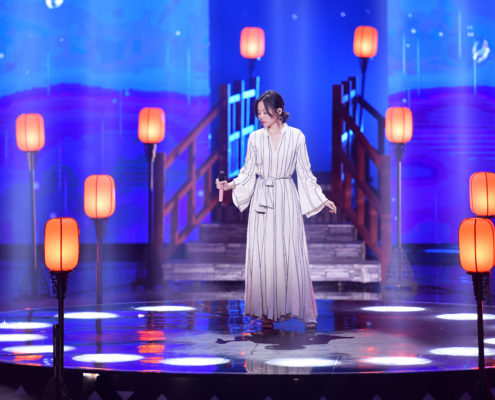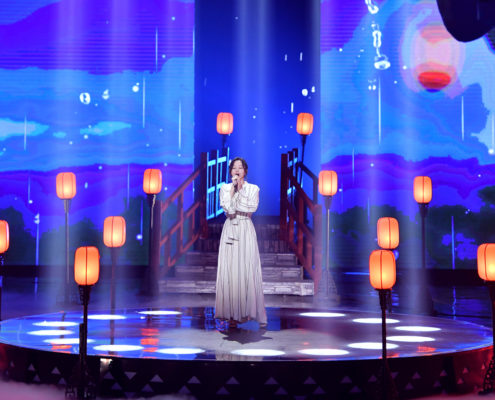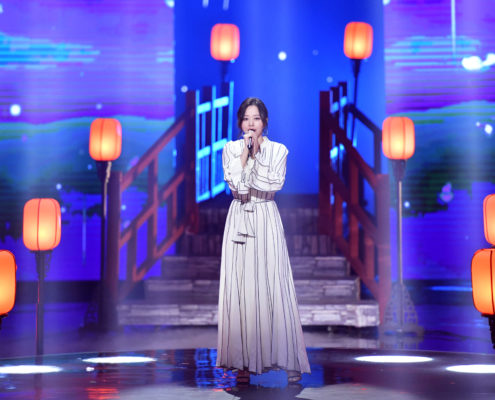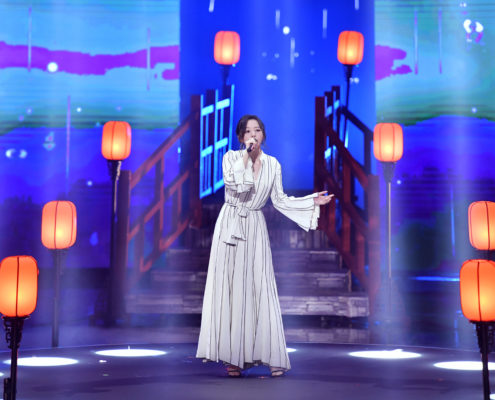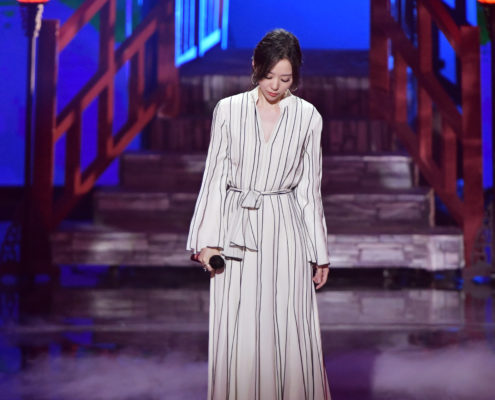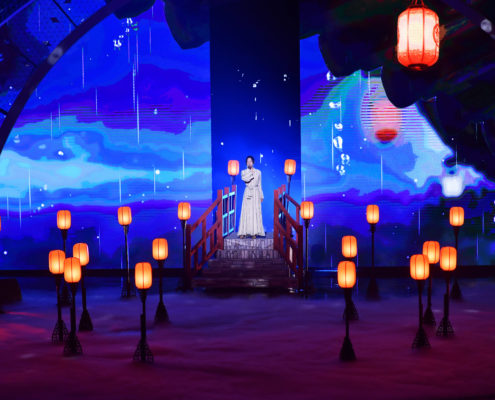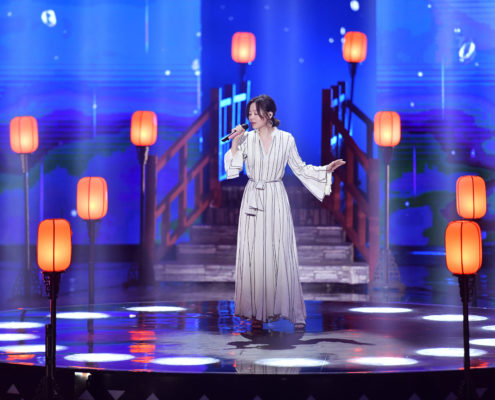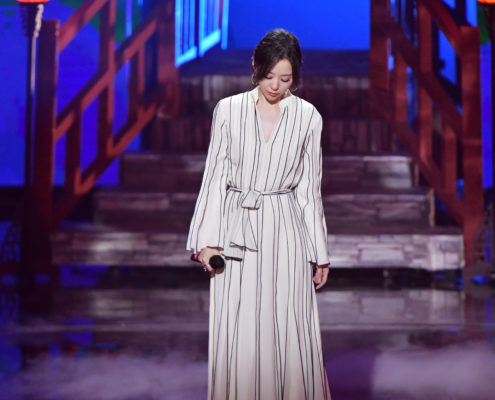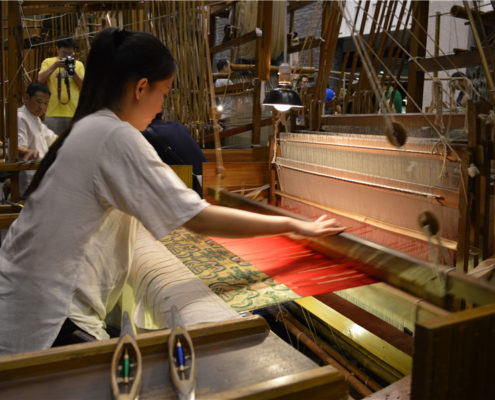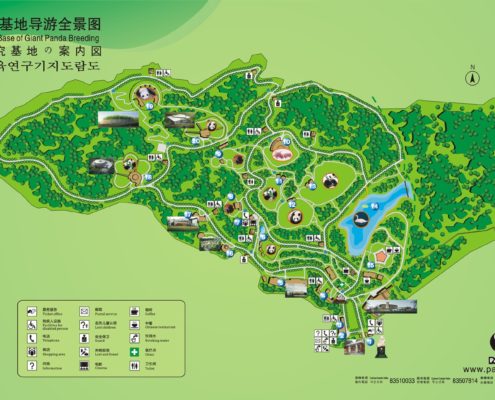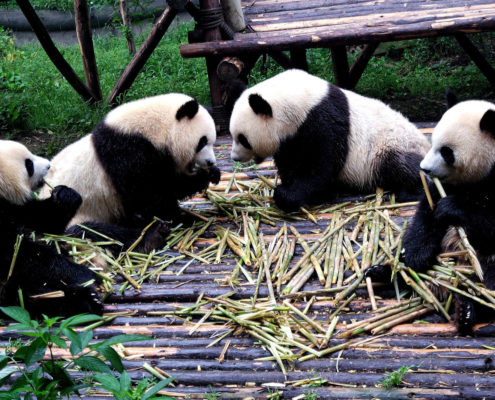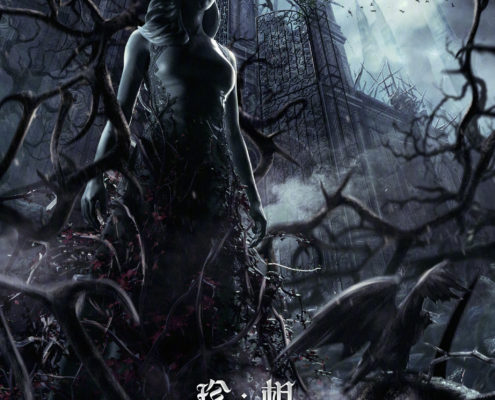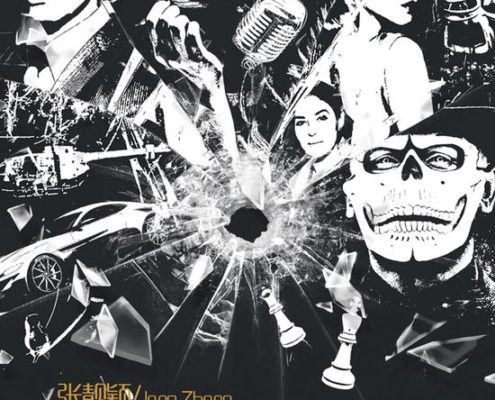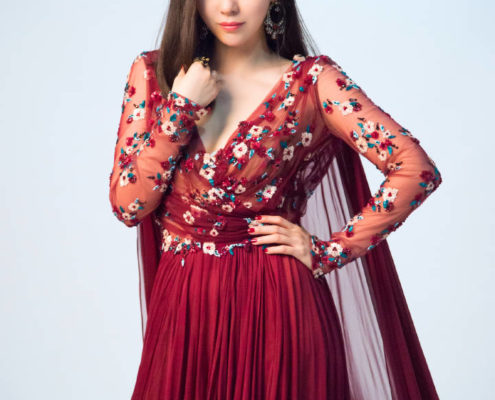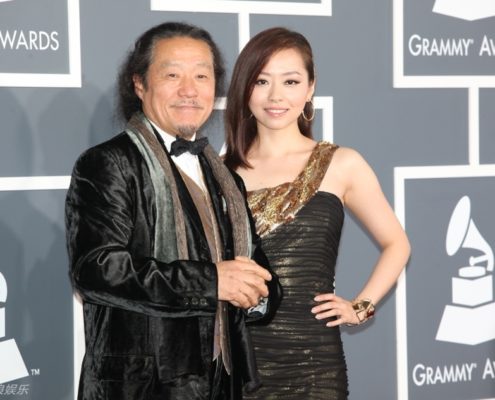Jane Zhang Spring Rain
The ancient Chinese poetry meets the “Key Voice of China”
Jane Zhang classical singer
One of dreams of Jane Zhang 张靓颖 it’s always been to spread the ancient poems of her hometown with her songs. She finally got her wish and entered the classical music stage for the first time, singing 《Spring Rain 春夜喜雨》, a classic poem written by the poet Du Fu 杜甫 (Gongyi, 712 – Hunan, 770) during his five-year stay in Chengdu 成都.
Classic rumors
《Classic rumors – Communication with poetry 經典詠流傳》is a new way of media interaction, so that hundreds of millions of viewers can relive the classic poetry as classic song. The show is aired on CCTV 1, the generalist channel of China Central Television Network.
Coming back in the warm memory of her life in Chengdu while she singing her hometown’s ancient poems, Jane said: “For the first time I was more nervous than usual”.
Here is the video of Jane singing《Spring Rain 春夜喜雨》in the season 2, during the second episode broadcast last February 2 by CCTV 1.
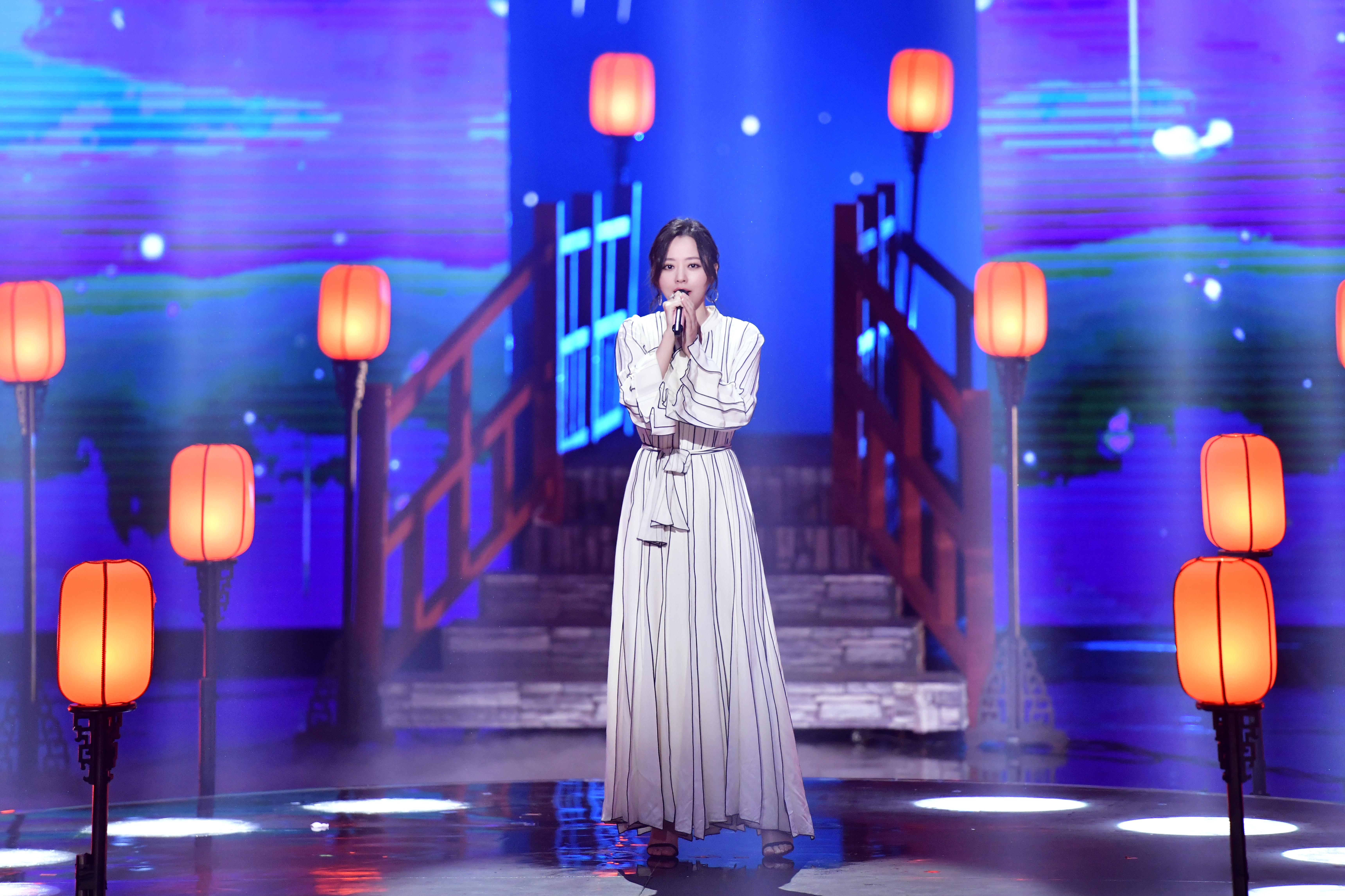
Jane Zhang sings《Spring Rain 春夜喜雨》by Du Fu 杜甫
Chengdu
Today Chengdu is a Prefecture-level and a Sub-provincial city which serves as the capital of Sichuan province. At the time of the 2010 census, Chengdu was the 5th-most populous agglomeration in China. With more than 10 millions inhabitants the city is considered a World City with a “Beta +” classification according to the Globalization and World Cities Research Network.

Chengdu, capital of Sichuan (China)
In this awesome metropolis the ancient Chinese culture and the progress of technology come together to create a unique and spectacular context. Among the wonderful places that the city offers is noteworthy, and it’s a must-see for tourists, the “Giant Panda Breeding Research Base“, a structure dedicated to preserving the Giant Panda and other animal species at risk of extinction.
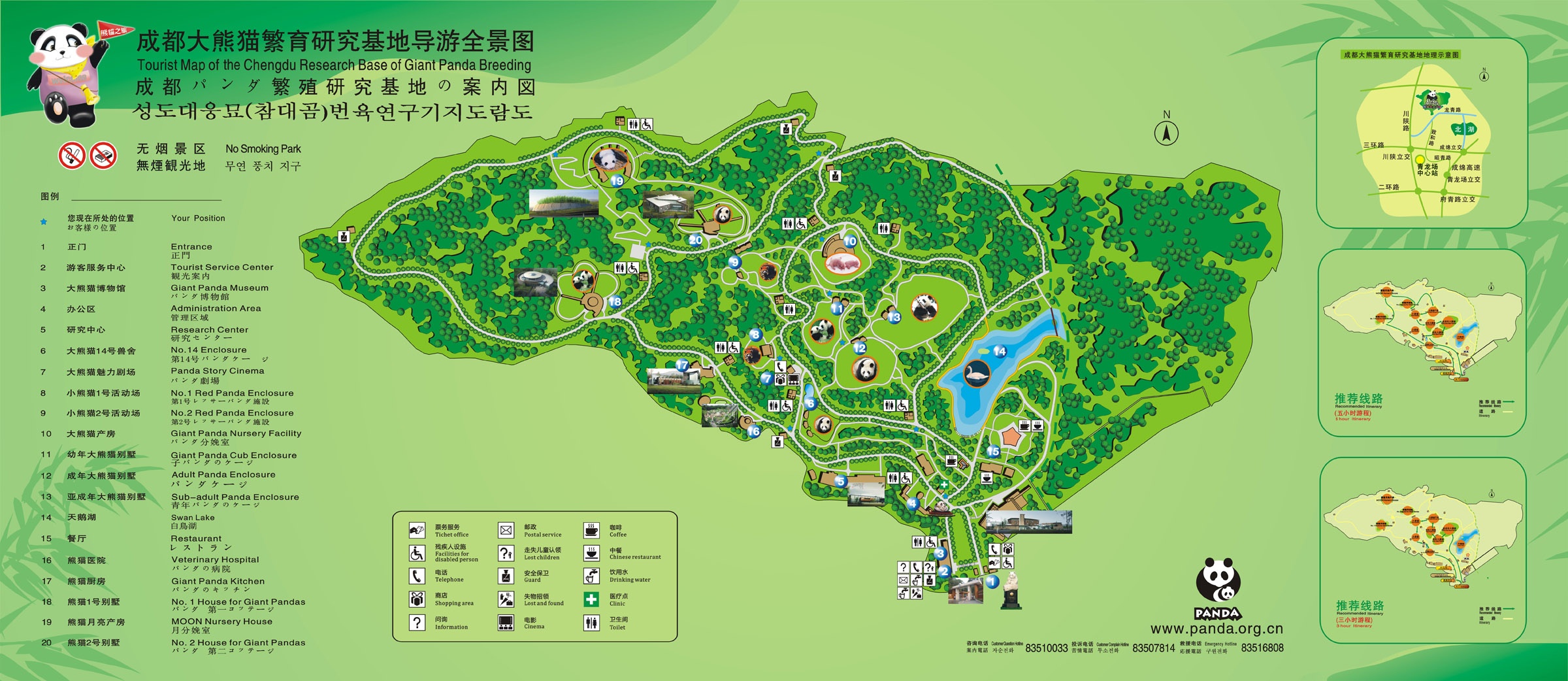
Map of Giant Panda Breeding Research Base in Chengdu
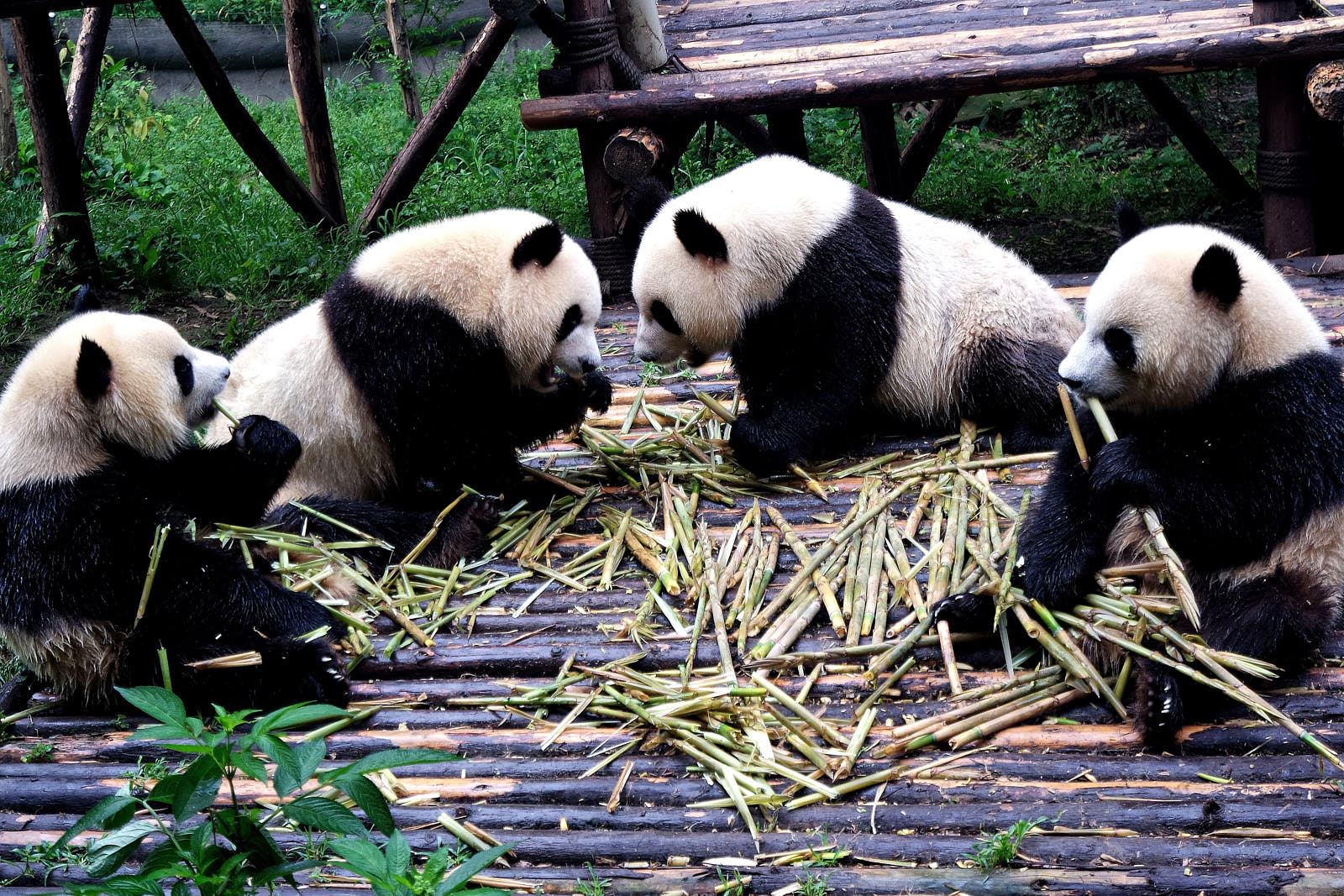
Thousands of years ago, Chengdu was called “The Land of Abundance” and the surrounding Chengdu Plain was also known as the “Country of Heaven“. It attracted many foreigners to seek their dreams, including Du Fu.
Jane Zhang Spring Rain
《Spring Rain 春夜喜雨》is a Chinese really well-known poem. Jane, as a passionate of the poetry of Du Fu, this time don’t use her high-pitched voice and her dolphin sound. Instead, she use the voice that she think is most suitable for the song, and interpreted the poetic relief, the happiness and the comfort of the whole poem dedicated to her hometown Chengdu.
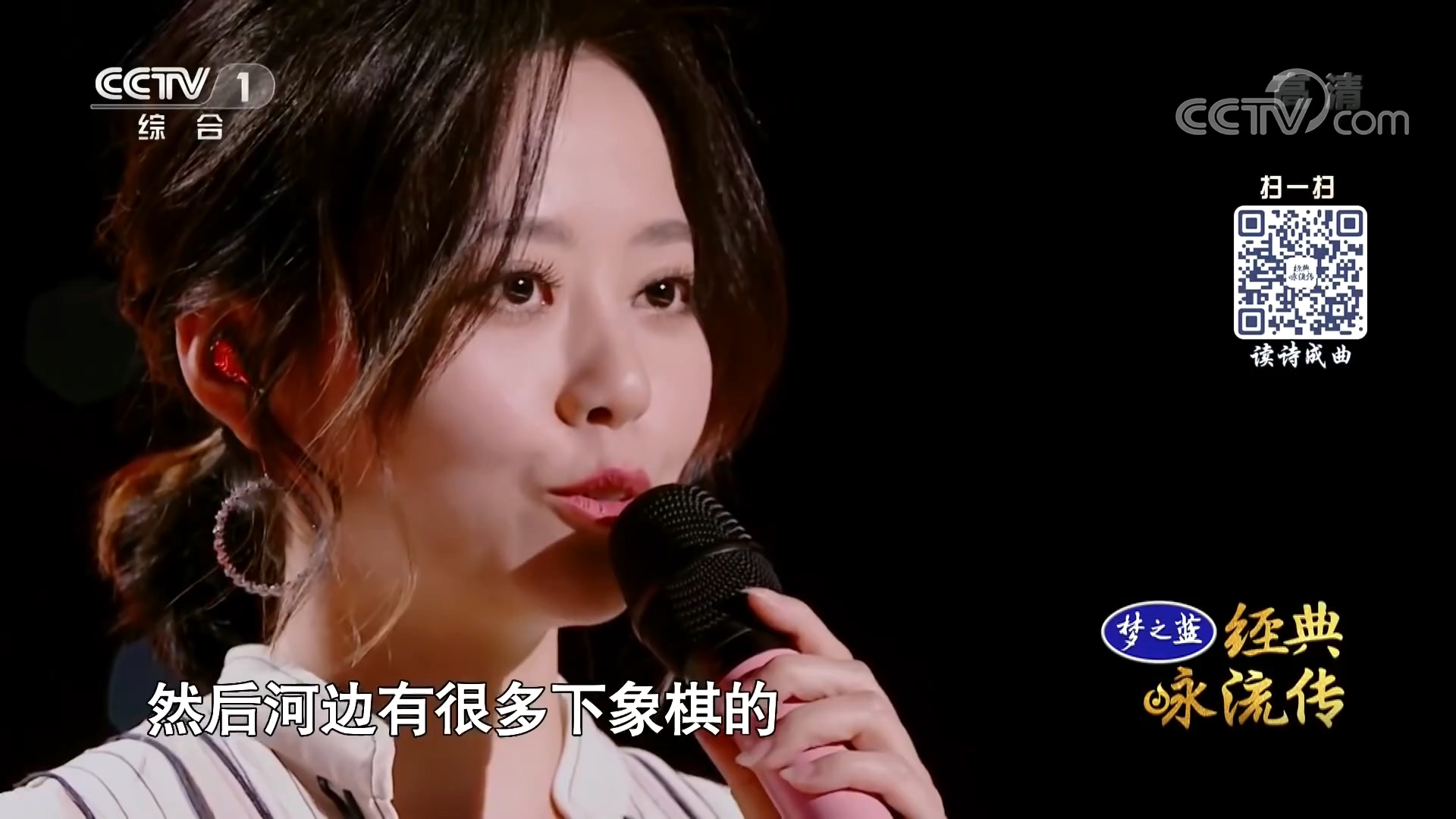
Jane Zhang as “classic singer” sings《Spring Rain 春夜喜雨》
The Spring Rain of Du Fu
Actually “Spring Rain” isn’t one of Du Fu’s typical style of poems since it takes on a more gentle and softer tone, reflecting his love and appreciation of the spring rain. Normally we just watch the rainfall with our eyes, but Du Fu feels the visual and audio impact of rain paying great attention to the beauty it brings to the world. To him, the rain is like a human being who brings a new lease of life, devoting herself to help others and to make the world a better place.
Rain is often associated with tears or sadness but in Poetry during Tang’s Dynasty, spring rain is seen as gentle and in a traditional agricultural society, the coming year’s livelihood really depends on the amount of rain in the spring sowing season. It does this gently and quietly, almost going unnoticed, and doesn’t ask for anything in return.
《Spring Rain 春夜喜雨》by Du Fu 杜甫
“好雨知时节,当春乃发生”
“Good rain knows when the time is right, when spring is here it will arrive.”
“随風潜入夜,润物细无声”
“Following the breeze at night time, it quietly moistens everything.”
“野径云俱黑,江船火独明”
“Clouds shroud the dark sky above the fields, the lone light from the boat on the river is especially bright.”
“晓看红湿处,花重锦官城”
“Red petals cover the moist ground when morning breaks, fresh flowers covered with the morning dew will be seen all over Chengdu.”
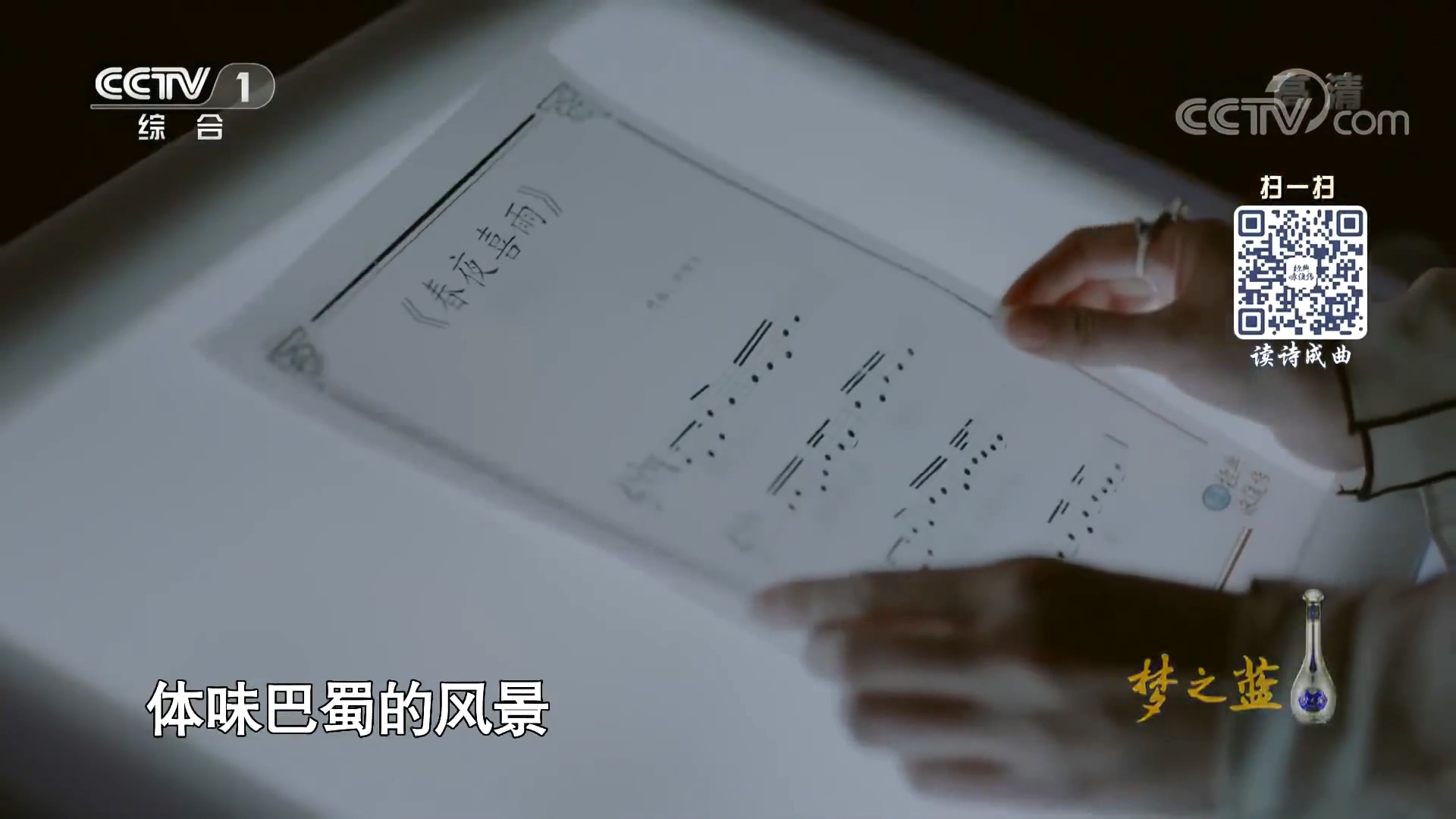
Chengdu: the ancient Official Brocade City
In the last verse of Spring Rain we can read the term “锦官城” . It was one of the ancient names of Chengdu that means “The City of the Brocade Official“.
The “brocade” is a fabric with a thousand-year history and is one of the most precious man-made textile products. At first glance, a brocade could look like a damask, but by turning it you can clearly distinguish the threads of the design that are clearly detached from the bottom of the fabric itself.
The name “brocade” derives precisely from this characteristic: the adjective “brocco” meant in fact “adorned with points and rings of thread in relief”. The texture of the brocade doesn’t go from one end of the fabric to the other, but it’s interrupted: this is due to the fact that the loom moves the threads during weaving only where the pattern needs to be created. This technique saves a lot of yarn and is the reason why the fabrics produced with gold and silver threads were very often brocades.
In ancient times the production of brocade of great value took place in Italy in Venice and in China in Chengdu. This is yet another example of how Italy and China were linked to each other by the so-called “Silk Road“.
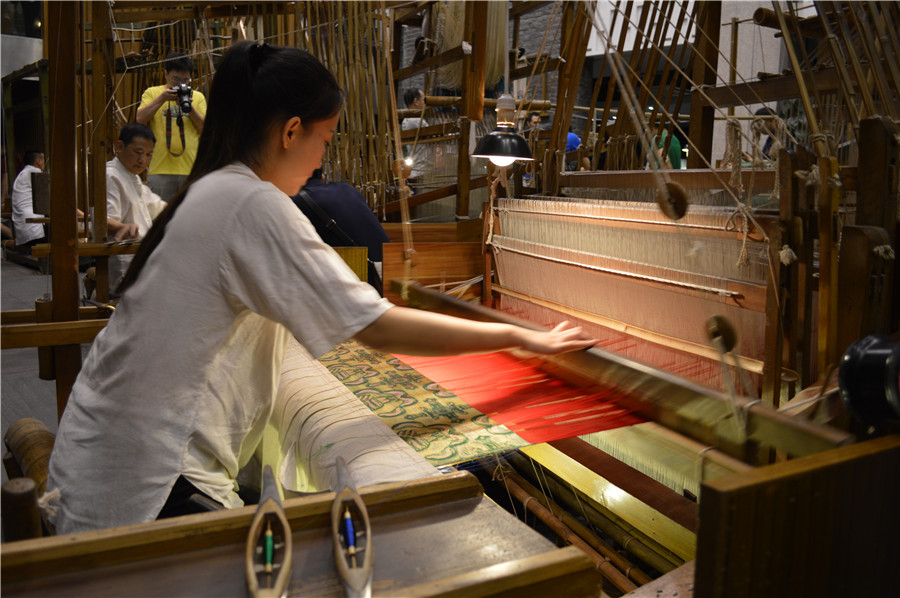
A young woman at work on a Shu Brocade patterning tower loom in Chengdu (Shu Brocade and Embroidery Museum)
Under the Han Dynasty (206 BC-AD 220), the brocade produced in Chengdu became fashionable and was exported throughout China. A “Official Brocade” was established to oversee its quality and supply. Shu Brocade reached its apex in the Tang Dynasty (AD 618-907) and was the specialty of ancient Chengdu.
Jane Zhang’s adaptation of《Spring Rain 春夜喜雨》
Composer: 何佳乐
Arrangement: 杨子轩
Music director: 刘卓
Orchestra: V Band
String: 靳海音®弦乐团
Mixing: 李智伟
Lyrics:
| Chinese | English |
|---|---|
| 哪来的一抹云 遮了我的月 半山腰浓雾下 风撩拨弄弦 清清浅浅 喜雨春夜 哪开的一池艳 染了整片天 风也停雨也歇 蛙声渐入夜 无言无眠 喜雨春夜 好雨知时节 哪开的一池艳 好雨知时节 好雨知时节 花重锦官城 |
Where’d you get a cloud Covered my moon Halfway up the mountain, under the fog The wind titillates the strings Clear and shallow Happy spring night What a pool of flowers Dyed the whole day. The wind stops and the rain stops The frogs croaked into the night Silent sleepless Happy spring night Good rain knows the season What a pool of flowers Good rain knows the season Good rain knows the season Flowers cover Brocade Official City |
